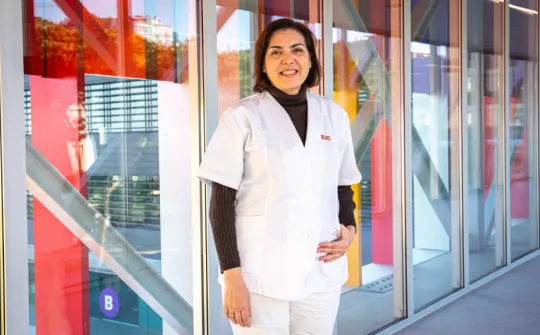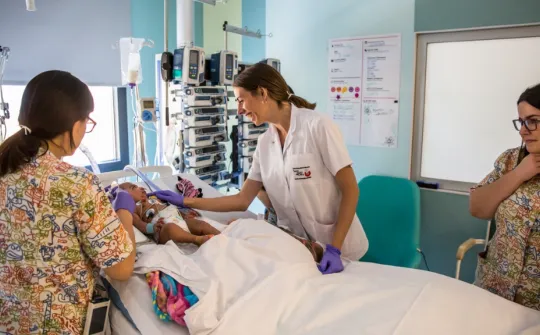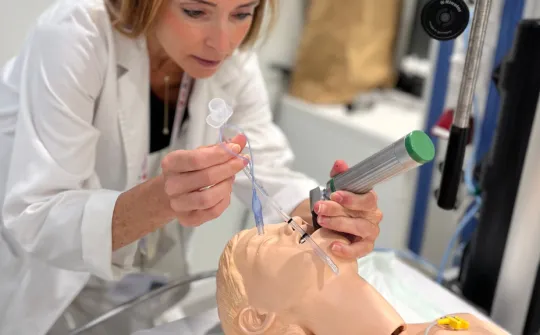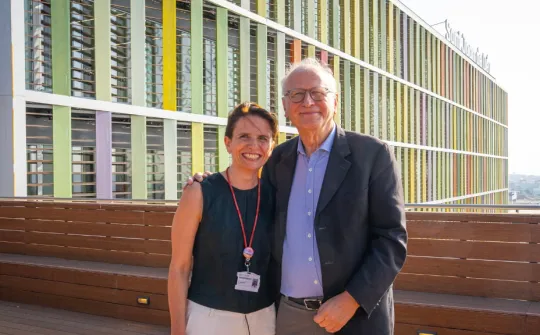A smart lollipop used for diagnostic purposes, the winning project at "Pediatric Innovation Day"
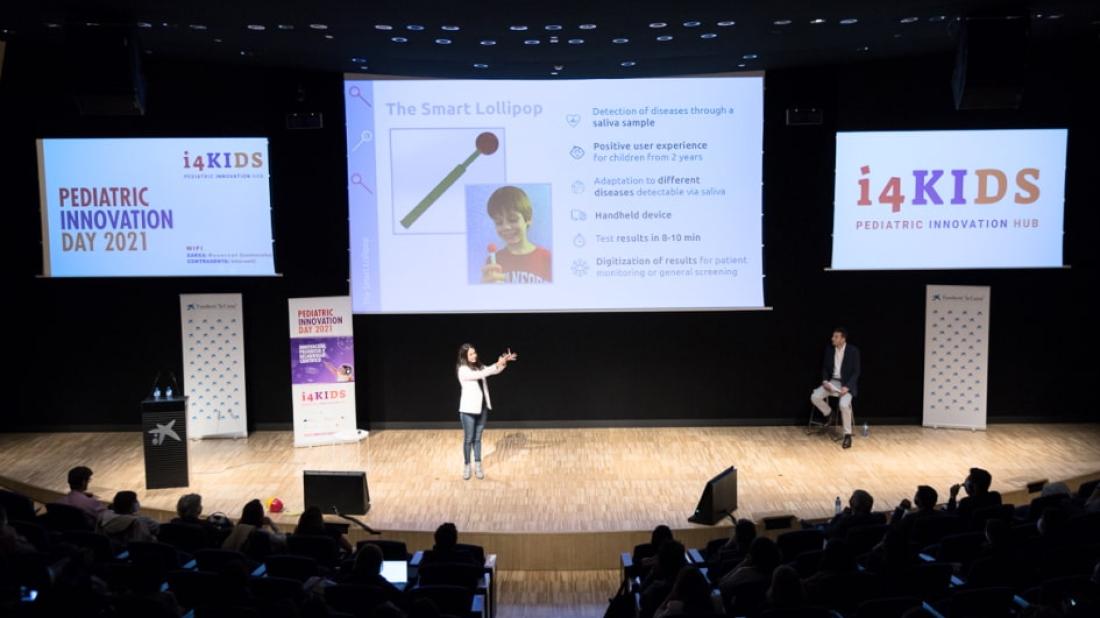
This scientific event, organised by the i4Kids paediatric innovation hub and coordinated by the Hospital Sant Joan de Déu, was a resounding success, with 49 projects entered.
At the event, held on October 21 at the CosmoCaixa, the jury selected The Smart Lollipop as the winning project. It is a device based on a lollipop that detects diseases by means of a saliva sample, permitting a rapid and non-invasive diagnosis of certain conditions, such as coeliac disease. The principle is straightforward: the child eats a sweet like a lollipop without disposing of the stick. This part of the device is used to collect the saliva sample which contains biomarkers that help to identify different conditions. Hitherto, the trials have been able to detect hypercholesterolaemia and coeliac disease, although the idea is to add further diagnostic lines.
The winning device was selected from among six finalists shortlisted from approximately fifty projects entered for the competition, which is organised by i4KIDS. The runner-up was the speech therapy rehabilitation platform called Blapp, an auto-adaptive therapeutic proposal with voice recognition. Blapp offers games that are managed by the therapist, who introduces the activity variables depending on each patient's needs and then monitors their progression.
The third prize went to the Neosonics project, a non-invasive device for detecting meningitis in newborns. This potentially life-threatening infection is very difficult to diagnose, particularly in babies, due to the fact that the disease's symptoms are very unspecific. This solutionuses high-frequency ultrasound to measure the concentration of white blood cells in the blood-brain fluid non-invasively, and helps to identify suspected cases of meningitis. Currently, the spinal tap is the only detection system.
Funding for research and innovation in paediatrics, an unresolved issue
The sum of 15,000 Euros went to the winner, and 7,500 Euros to the other finalists. The purpose of these awards is to provide a boost to medical innovation products in the field of paediatrics, an area in which new funding models and mechanisms need to be created and greater coalition promoted among stakeholders of the paediatric health ecosystem. Initiatives such as Pediatric Innovation Day and the projects Contest sponsored by i4KIDS are intended to foster paediatric innovation and to place the emphasis on the need for investment so that ideas can be brought to fruition and to bring social value.
At this moment in time, the lack of investment by the public and private sector alike means that the financial resources allocated to paediatric innovation are insufficient and difficult to access. For this reason, breakthroughs such as the ones proposed by the projects showcased are often underfunded in comparison with those intended to improve health in adults.
The session featured the participation of investors and public stakeholders, who highlighted the need for institutions and the scientific community to engage in proposals like the one presented at the scientific day event, which exemplified the high degree of paediatric innovation existing in Spain.
About i4Kids
The mission of the i4Kids Paediatric Innovation Hub, led by the Hospital Sant Joan de Déu, is to promote innovation products in paediatric and mother and child care with a view to delivering solutions that are designed, developed and tested with and for children. It has 25 member organisations that encompass more than 75 research groups, 22 companies from the industry, patient organisations, private investment and the public administration.
